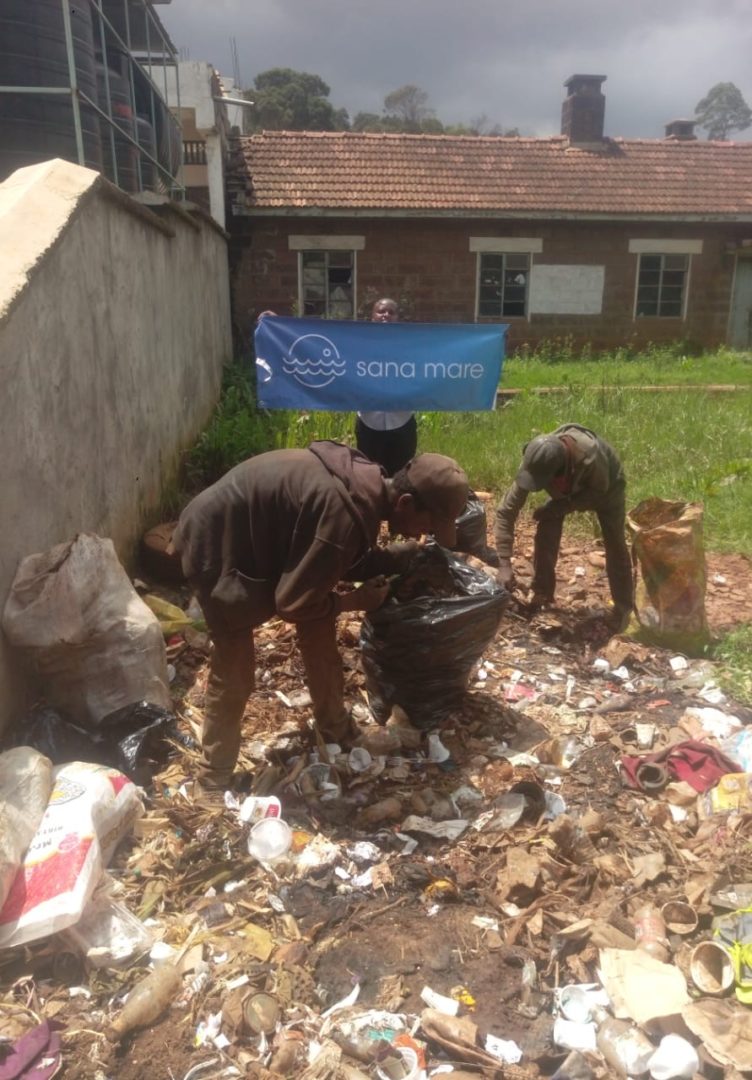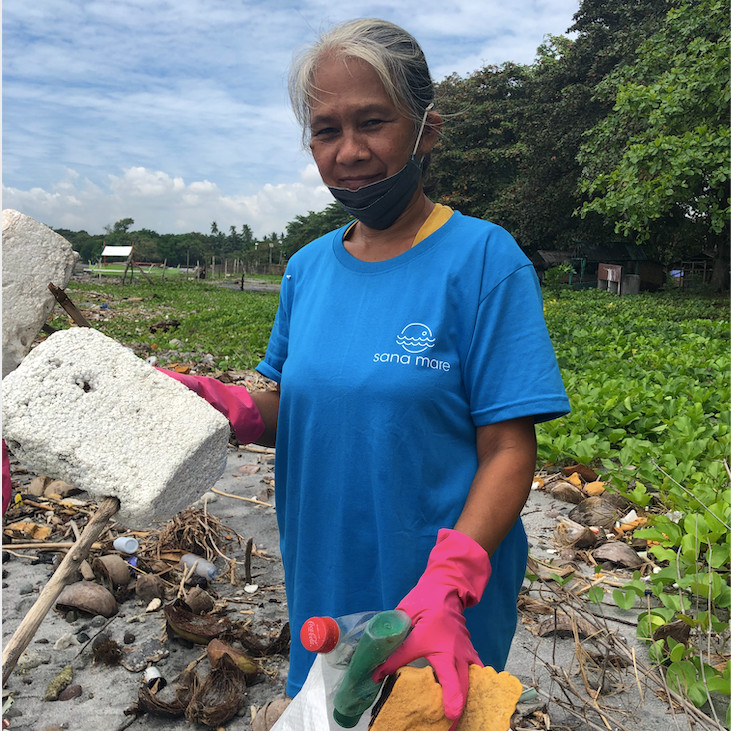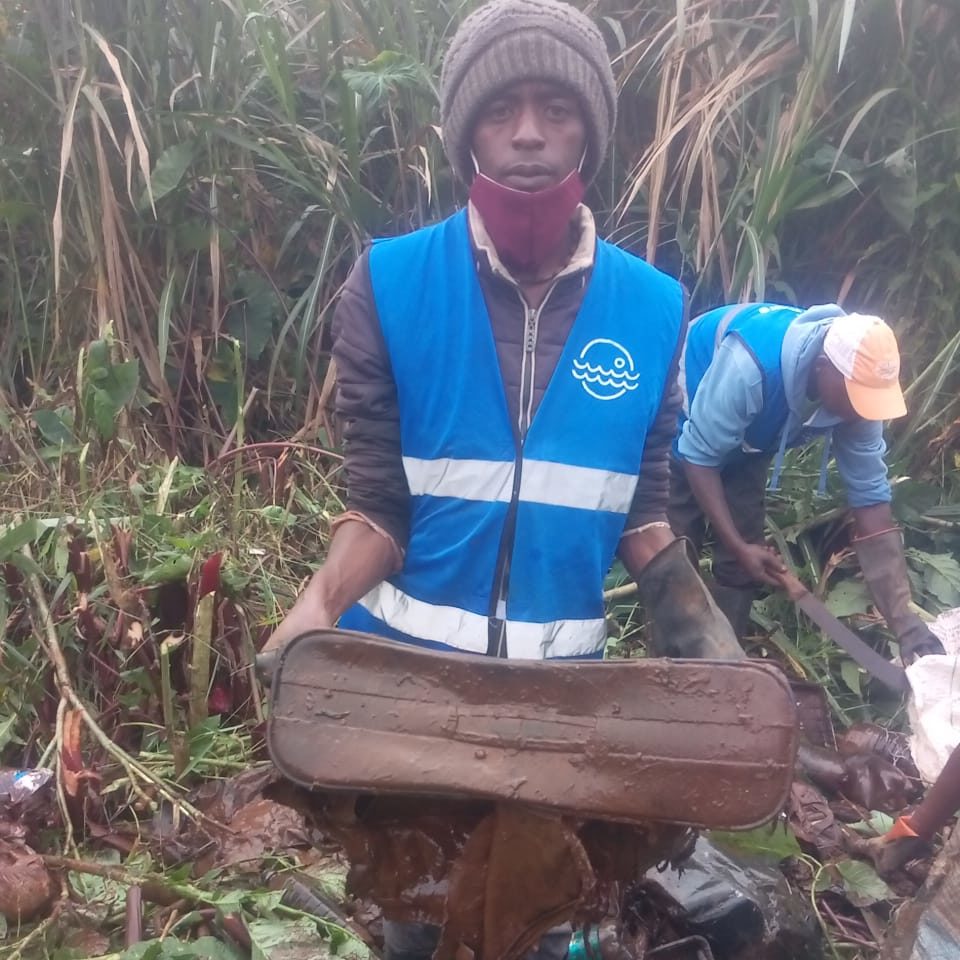Social Clean-ups in Afrika und Asien
Etwa 59% 1 der weltweit recycelten Kunststoffabfälle werden von informellen Müllsammlern gesammelt, sortiert und in die Wertschöpfungskette zurückgeführt. Wir helfen Menschen in Afrika und Asien, die in Armut leben. Die Hilfsgelder werden nicht verschenkt, sondern als Aufwandsentschädigung für das Einsammeln von Müll aus Gewässern gezahlt. Wir verbinden mit dem Projekt Armutsbekämpfung und Umweltschutz. Unser Projekt ist ein armutsreduzierender Prozess der Integration von informellen Müllsammlern in bessere Arbeitsbedingungen.
1: 2020 The Pew Charitable Trusts, Breaking the Plastic Wave
Die Dringlichkeit der Plastikverschmutzung
Armut als Ursache beseitigen
Die Prioritätenpyramide und ihre Bedeutung
Die Wirksamkeit von Social Cleanups
Als Antwort auf die miteinander verbundenen Herausforderungen von Armut und Umweltverschmutzung hat Sana Mare das Social Cleanup Programm als ganzheitliche Lösung entwickelt. Das Projekt stärkt Menschen, die in Armut leben, indem es ihnen die Möglichkeit gibt, durch Müllsammeln ein monatliches Einkommen zu erzielen. Die oberste Stufe der Prioritätenpyramide kann in vielen Entwicklungsländern mit einem Einkommen von umgerechnet weniger als 150 € erreicht werden. Mit diesem monatlichen Haushaltsbudget kann eine vierköpfige Familie in einem Steinhaus mit fließendem Wasser und Strom leben. Das Geld reicht auch für eine ausgewogene Ernährung und das Schulgeld für eine staatliche Sekundarschule. Ein Leben außerhalb der extremen Armut und mit Chancen auf wirtschaftlichen und sozialen Aufstieg ist damit gesichert und umweltfreundliche Verhaltensweisen werden möglich.
Sana Mare social cleanups finden in Kenia, Tansania, Sri Lanka und den Philippinen statt (stand Januar 2024). Während in Tansania, Sri Lanka und den Philippinen je ca. 20 Aktionen im Jahr stattfinden, sind in Kenia 8 Personen in einer Vollzeitanstellung (20 Tage pro Monat) beschäftigt. Insgesamt wurden bereits über 380.000 kg Abfall gesammelt (Stand Oktober 2024). Die gesammelten Wertstoffe werden an Recyclingfirmen verkauft oder im Rahmen des Projekts zu neuen Produkten recycelt. Damit wird auch Einkommen vor Ort generiert. Der Verkauf der Wertstoffe und Upcycling-Produkte deckt jedoch nur einen kleinen Teil der Projektkosten. Über 90% der Kosten müssen durch Spenden gesichert werden.
Wir brauchen Sie
Indem Sie das Social Cleanup Programm unterstützen, werden Sie zu einem entscheidenden Teil des nachhaltigen Wandels. Ihre Spende trägt direkt dazu bei, die Plastikverschmutzung zu verringern und den Kreislauf der Armut für die Bedürftigen zu durchbrechen. Gemeinsam können wir dauerhafte positive Auswirkungen sowohl auf die Umwelt als auch auf das Leben der Menschen haben, die sich für eine bessere Zukunft einsetzen. Helfen Sie uns! Spenden Sie jetzt und machen Sie einen echten Unterschied im Kampf gegen Plastikverschmutzung und Armut.




























